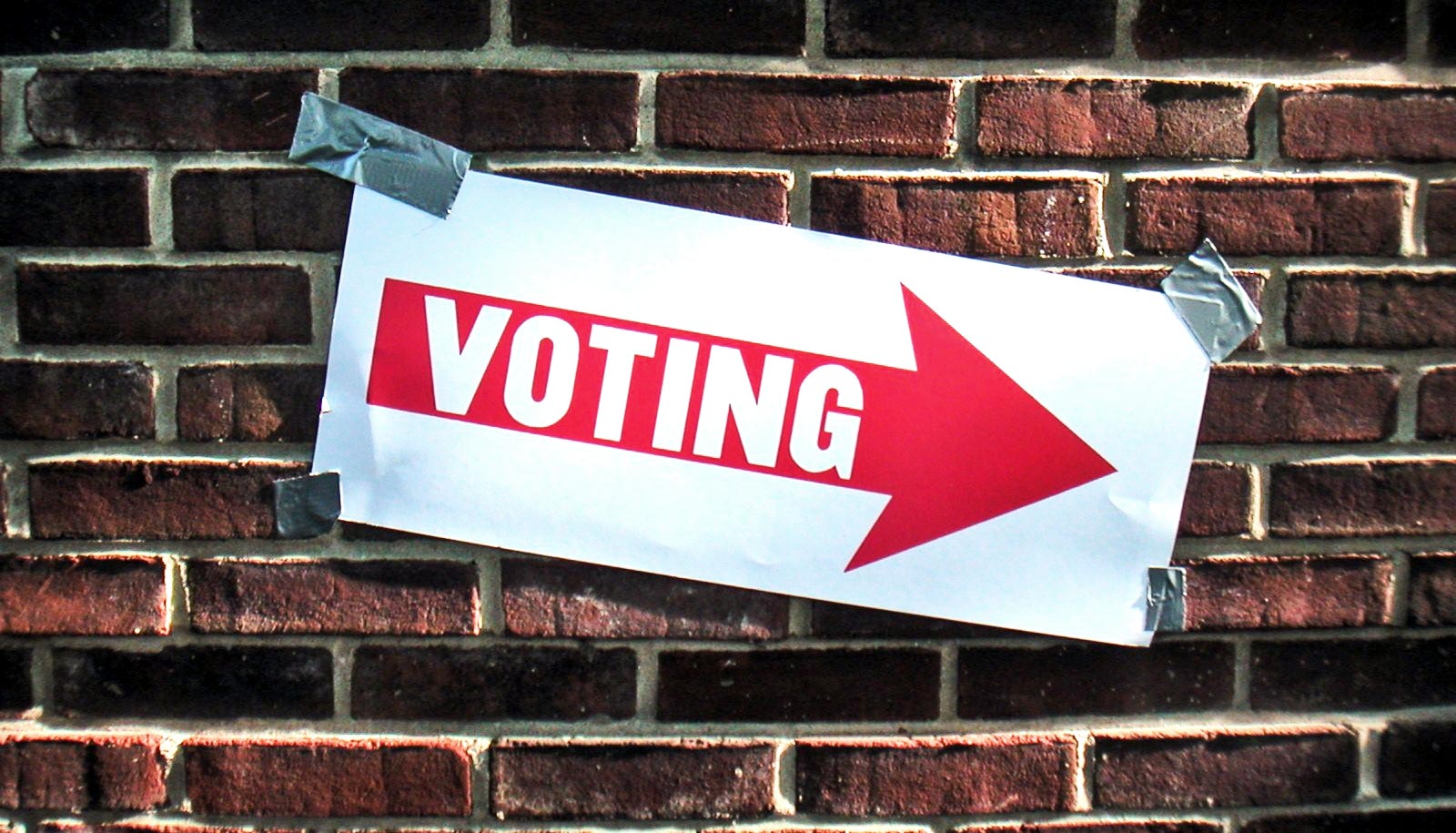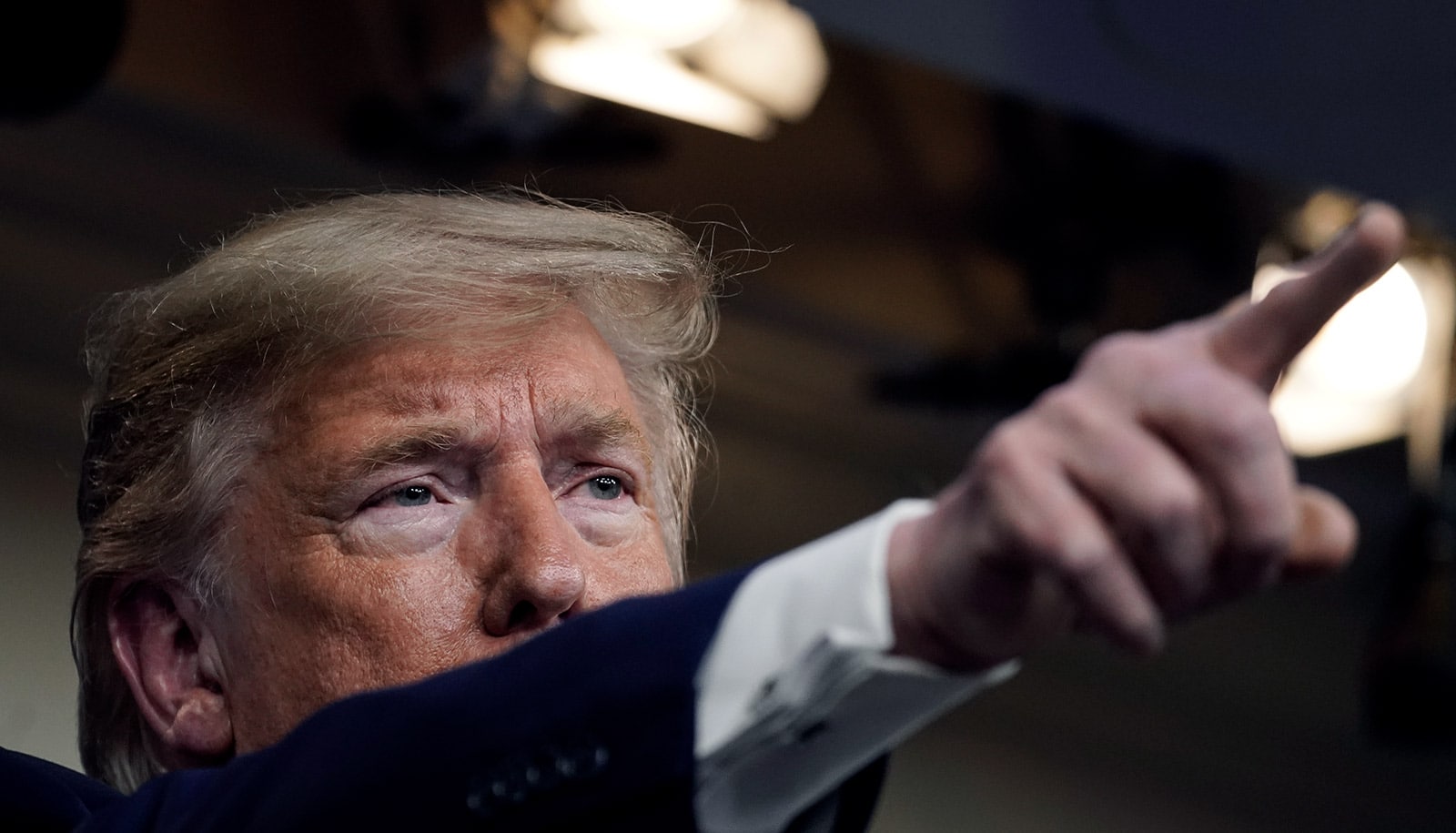Could the COVID-19 pandemic cause a delay in November’s presidential election?
The coronavirus outbreak has already caused disruptions in the 2020 election cycle, with a number of states delaying primaries and others scrambling to set up mail and absentee voting.
This week, New York state canceled its Democratic presidential primary, an unprecedented decision.
If the pandemic will be more of a roller coaster with peaks and troughs of cases until a vaccine is found, as many experts predict, it’s possible America could be in the midst of another shutdown come November.
In a speech during an online fundraiser on April 23, presumptive Democratic presidential nominee Joseph R. Biden Jr. told listeners he was concerned the current administration would try to postpone the election.
Is that even possible?
Here, Rogers Smith, a professor of political science at the University of Pennsylvania whose research focuses on constitutional law, American political thought, and modern legal and political theory, explains what the constitutional process would be for postponing a presidential election:
Has there ever been a time in history where a presidential election was postponed, canceled, or delayed?
No. We have held elections during the Civil War and during World War I despite extreme conditions, so there isn’t any precedent for this. Some state and local elections have been delayed, however.
The Constitution divides the power over national elections between the states and the Congress and Article 2 of the Constitution does say that Congress could set a different election day if it so chooses.
If Congress postpones the election so that there is no one qualified to be president when the current president’s term expires, Congress does have authority to choose a president. So the power lies with Congress to choose the dates for a postponed election, or even to act itself if no election is held before next January.
Another issue is the Constitution makes no reference to any presidential authority to affect the timing or conduct of a national election. Joe Biden is understandably concerned that Donald Trump may seek to delay the election, but it is hard to find in the Constitution any basis for President Trump to do so.
You have to read very strong implied national emergency power into Article 2 to say the president has any authority at all.
On the other hand, the Constitution is very clear, both in Article 2 and in the 20th amendment, that Congress has the responsibility for choosing the time of election and for establishing what should be done if any election could not be held.
The way of conducting the election is left up to the states, and they could change to vote-by-mail methods if it looks like in-poll voting will not be practical. However, they should start preparing for this no later than mid-summer.
What do you see as the top priorities right now in the lead up to the election?
I think it is probably a good idea to begin to prepare for vote-by-mail in as many states as possible. Some states like Oregon have been doing it for years.
Trump indicates he doesn’t like mail-in voting. He thinks it is vulnerable to fraud and works politically against Republicans because it promotes higher turnout and that can work in favor of Democrats. He himself votes by mail, but he doesn’t want to see it as a national practice.
His perception that it works against Republican interests may mean that Republican-led states won’t choose to do vote-by-mail, and that would be unwise.
There is no solid evidence that it works against Republicans or is subject to voter fraud. It might enable us to conduct the election most effectively should there be another wave of pandemic around Election Day.
What should states be doing?
The sooner is always the better, but right now states have a lot of things on their minds. If they started preparing in July they should have plenty of time to get voting by mail up and running by Election Day.
The will to do it probably won’t arise until it’s clear we will have pandemic issues on Election Day, however, and that won’t be clear until well into the fall.
There is a risk we won’t prepare until it’s very late to prepare and then it might not be done well.
How likely is it that the election could be postponed?
I am not deeply concerned at this point. It’s certainly appropriate to worry about whether we will conduct our most important democratic election—that is to say the presidential election in 2020—effectively, but there’s very broad support for achieving that amongst the leadership in the country, state, and nation.
A push to move to vote-by-mail would be more controversial. Still, even if only some states do it we will be able to conduct the election in the normal fashion.
It’s important to understand that since the Democrats control the House and the Republicans control the Senate, it’s unlikely Congress will reach an agreement on postponing the election. It would take extraordinary circumstances to persuade Congress to agree on this.
The greatest likelihood is we will have the election on time, with a mix of mail-in and in-person voting, but we will successfully have the election.
The recent Wisconsin experience can be seen as reassuring. There was a strong case for postponing the primary there, but they couldn’t get bipartisan agreement to do so.
So they held it with a mix of absentee and in-person voting. It was less than ideal, but it was still a successful election.
Source: Penn


